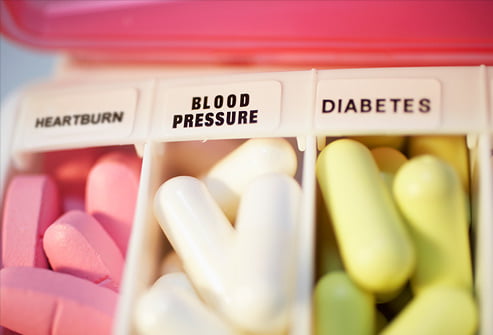When at home, it’s important to be fully stocked on all the necessities in life. Things like groceries, toiletries, and cleaning supplies are commonly kept tabs on.
But do you have a complete medicine kit?
Having a multitude of different drugs and supplies in the house in case of an emergency is an absolute must. From a random viral infection to a deep cut from chopping onions, anything can happen at home – and you’ll need to be properly prepared.
This is especially important here in India, where medical care is subpar – according to the World Bank, an experimental study showed that only twelve percent of trained medical doctors correctly diagnosed a fake patient.
However, private healthcare in India is a different story – after all, according to Forbes, the country is number three in the world in medical tourism.
The list down below should be enough to tackle most, if not all cases where a hospital isn’t necessary, but could be given enough neglect.
Stock up on NSAIDs
The first thing every household should stock up on are a number of non-steroidal anti-inflammatory drugs. What are NSAIDs? They’re your average aspirin, ibuprofen and naproxen – over-the-counter painkillers that are especially easy to buy and sell because of their distinction as non-steroidal medication that is non-narcotic, and non-addictive. Paracetamol is sometimes considered a NSAID, but because it’s not an anti-inflammatory drug but simply blocks a pain receptor, it’s not quite eligible for the distinction.
NSAIDs are useful in a multitude of ways. As an example, they’re used in a large variety of painful situations – postoperative pain, headaches and migraines, arthritis, tennis elbow, back pain, menstrual pain, inflammation due to impact injury, and fevers. Unless you’ve suffered a stroke or heart condition, are on heart medication, or have an ulcer, NSAIDs are generally safe. That’s why they’re available in practically any country’s pharmacy – you can even grab them from an online medical store in India, like BigChemist– and should be kept stocked well at home, mostly in the case of headaches or cramps.
A Roll of Adhesive Bandages
Bandages are very useful, for a number of reasons. First, you can counter a sprain or overstretched tendon with a tight bandage, to avoid further injury and give the body time to heal itself. Secondly, it’s an absolute must in case of a large cut. Although you should always have a separate first-aid kit stocked somewhere at home–preferably in the bathroom or kitchen or another accessible spot in the house—having a separate roll of bandages in your medicine cabinet for all intents and purposes is a safe and smart bet.
If you have pets, bandages can be a lifesaver for them. Dogs and cats especially enjoy hunting, and in some scenarios, they get their snouts and legs scratched up either through combat or reckless behavior. Due to the fast beat of a dog’s heart, dogs lose quite a lot of blood – applying a firm bandage quickly can help a dog rest and rejuvenate without adverse effects.
Of course, if you or your pet have contracted a serious injury, you should get to an emergency room or the nearest veterinarian as quickly as possible. But in many cases, you’ll be able to deal with a small cut or scratch yourself.
Indigestion Treatment
We’ve all been there – from constipation to diarrhea, some of our most uncomfortable medical moments have been simple indigestion issues. Maybe it was that fish from last night, or maybe you just don’t do well with overly spicy food – or maybe, in the absolute worst-case scenario, you’ve just discovered you’re actually lactose intolerant. As you jot down lactase tablets on your next shopping list, do remember to stock up on digestive medicine.
Some of the most commonly prescribed digestive fixes are calcium carbonate tablets and Maalox, which help deal with heartburn and other issues caused by an overly acidic stomach. Having a natural laxative handy can also help in case of a mild constipation, and otherwise, a bottle of Pepto-Bismol or a few tablets of Imodium can help you tackle your loose bowel movements.
Eye Drops and Antihistamines
While eye drops are generally handy for inflammation, a speck of dirt irritating your cornea, or a pesky stray eyelash, antihistamines are the more important category in this case. Histamines are biological compounds released by the body in reaction to a venom or irritant – the most common and easily understood example is the mosquito bite. When a mosquito sucks your blood, their saliva agitates your body and causes it to release histamines, which make your skin swell and become incredibly itchy. This can happen in many different circumstances to various degrees of severity, especially in the case of an allergic reaction or a rash.
Antihistamine creams are best for rashes and bug bites – Benadryl, for example, is an essential thing to keep handy –but for sneezing and other histamine reactions inside your body, clemastine and loratadine are good options. Do note that if you’re severely allergic to something, don’t bother with mild over-the-counter antihistamines – always have an EpiPen ready, and get yourself to the nearest emergency room.
As in any medical case, contact your doctor before taking any sort of medication.



































